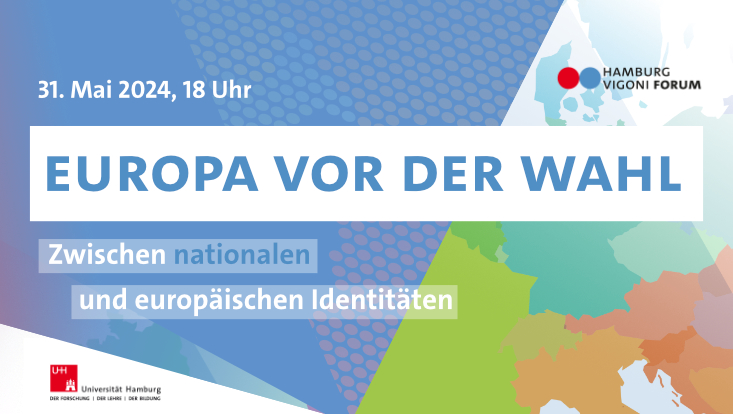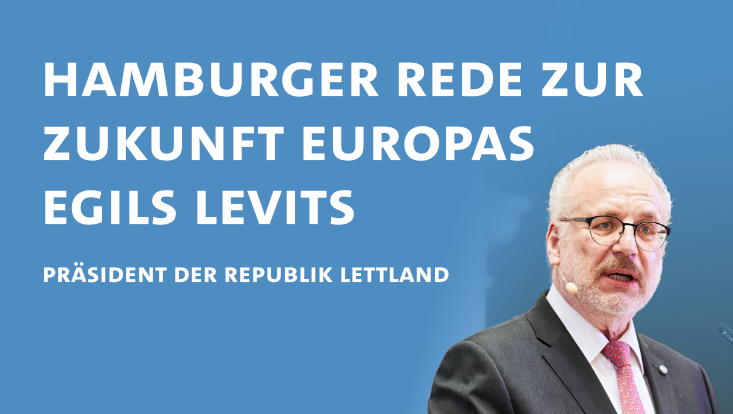31. May 2024, 6 p.m.Europe before the elections: between national and European IdentitiesSpeech by Janusz Reiter at the Übersee-Club Hamburg
31 May 2024
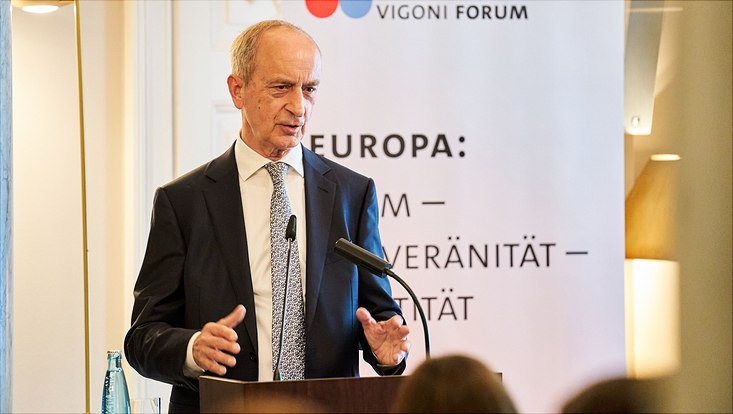
Photo: UHH / Hoehne
On May 31, 2024 at 6 p.m., the former Polish ambassador to Germany and the USA, Janusz Reiter, spoke about the role of national and European identities in the context of the EU elections. The event took place at the Übersee-Club Hamburg and was attended more than 80 participants interested in European politics.
Reiter began with a brief overview of Poland's historical context, highlighting the nation's long-standing dream of independence, often rooted in a romantic vision of the nation, and the role of the Catholic Church in uniting the country. This historical foundation set the stage for understanding Poland's contemporary journey.
Poland after 1989: Between national freedom and individual liberty
Reiter identified 1989 and 1990 as pivotal years when Poland achieved a dual sense of independence: the country gained both national freedom and individual liberty. This alignment of personal pursuits with national well-being represented a significant turning point for Poland. Quoting Oscar Wilde, Reiter noted, “There are only two tragedies in life: one is not getting what one wants, and the other is getting it,” underscoring the new challenges Poland faced post-independence.
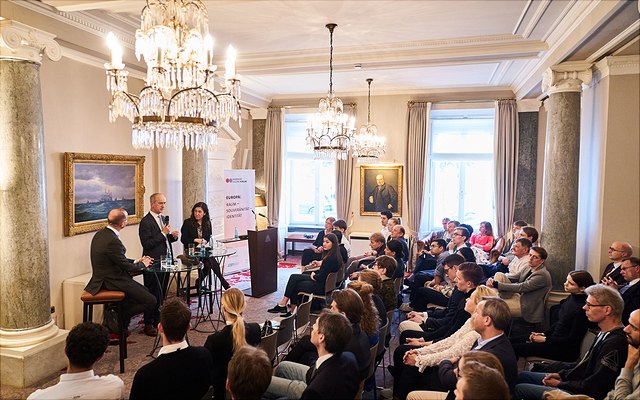
The election of Aleksander Kwaśniewski: “Let’s choose the future”
The 1995 election of President Aleksander Kwaśniewski with the slogan "Let's choose the future" marked a shift in Polish politics towards forward-thinking. This shift was also evident in the lack of public interest towards the visit of Roman Herzog in 1994, the German Federal President, who on the 50th anniversary of the Warsaw Uprising, came to Warsaw to give a speech and ask for forgiveness on behalf of the German people. The Polish people were more interested in the future than dealing with the past.
Ten years after Herzog’s visit, by 2004, the symbol of the Warsaw Uprising had become a part of Polish pop culture, driven by the younger generation's desire to understand their identity through history. This reflected a broader trend where understanding the past became essential to answering the question, "Who are we?" Similar questions were being asked in liberal democracies all across the world.
The Global character of the question of national identity
Reiter pointed out that the year 2024 is particularly interesting, as more than half of the world will participate in elections this year, emphasizing the global nature of the national identity question. He referenced India, South Africa, and Brazil as democratic nations outside the Western sphere, facing similar issues of cohesion in liberal democracies. Highlighting Francis Fukuyama's perspective on the crisis of liberal democracy, Reiter noted threats to tolerance and individual rights, the decline in political rights, and the rise of autocracies like Russia and China.
In each case, nationalism has powered the rise of this movements challenging liberal democracies, denouncing elites and promoting isolationism, and therefore posing a significant threat to European unity.
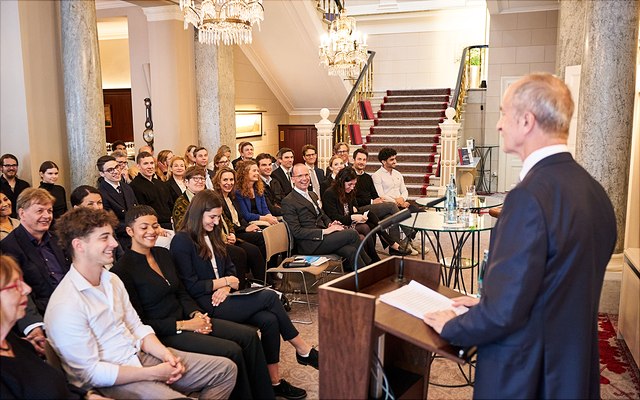
Defending the European Project from Nationalism
For Poland and other Eastern European countries, joining the EU was a success, but it also marked the beginning of a new chapter dominated by the question of the added value of the individual national perspective within the new European context. Initially, the discourse surrounding the accession of Eastern European states was dominated by concerns over how to prevent the spread of nationalist and "backward" tendencies to Western Europe. Reiter emphasized that, although nationalists in Eastern Europe may appear "in a different costume “, the current situation and the rise of right-wing parties show that the crisis of liberal democracy is a pan-European problem.
The experiences and perspectives of the often-dismissed Eastern European countries are more relevant today than ever. From today’s perspective the new member states of the EU “had a better sense of the importance of security, societal vulnerability, and recognizing enemies.”
Hope for the European Project
In his closing remarks, Janusz Reiter addressed the increasing nationalism and its impact on European cooperation. In his closing remarks, Janusz Reiter addressed the increasing nationalism and its impact on European cooperation. He highlighted the importance of cooperation at a time when isolationism is on the rise. The ongoing war in Ukraine epitomizes the struggle between aggressive nationalism (Russia) and liberal democratic patriotism (Ukraine). This conflict offers insights into how national identity can play a positive role in holding a nation together and making it responsive to liberal democratic ideas.
The Ukraine war, offers insights, into how national identity, can play a positive role, hold the nation together and make the country responsive to the liberal democratic ideas in the form of “liberal democratic patriotism”.
Finally, Janusz Reiter called on European countries to seek cooperation in the face of rising nationalism and to defend democratic values. He advocated for linking national identity with liberal democracy to create a united and resilient Europe. The future of liberal democracy will depend on our ability to learn from history and respect diverse experiences and perspectives.
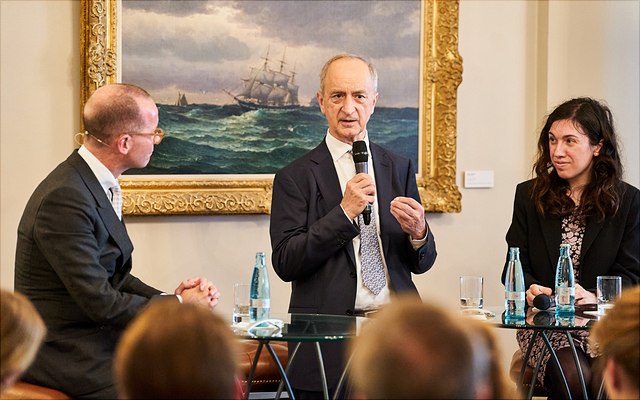
The event concluded with a short discussion by Prof. Dr. Markus Kotzur and Dr. Deborah Cuccia.

